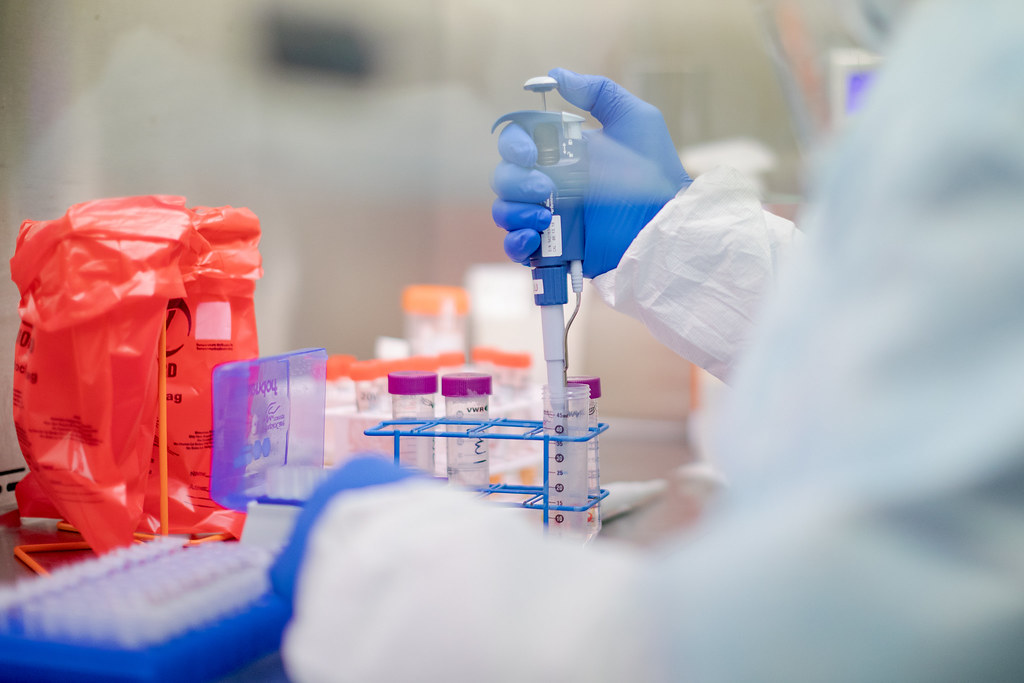Views expressed in opinion columns are the author’s own.
With news of a COVID-19 vaccine looming on the horizon, Americans have breathed a tentative sigh of relief. The vaccines, developed by Moderna and Pfizer-BioNTech, have been shown to be 94.5 percent and 95 percent effective against the virus, respectively. States have already made plans to distribute a vaccine to people, beginning with the highest-risk individuals.
And yet, it seems like nobody wants to be the first to take the vaccine. In fact, 62 percent of Americans said they would feel uncomfortable being among the first to get it. These numbers get even worse for historically marginalized groups; Black Americans are more hesitant than other racial groups to get the vaccine, despite being more likely to know someone who has died or been hospitalized due to the virus.
When we think of public distrust about vaccines, we normally evoke images of crazy anti-vaxxers spreading misinformation on Facebook, but that isn’t the only way fear is seeded in the public psyche. In reality, inequities in the health care industry also contribute to public distrust toward vaccines and health care officials. Rather than ostracizing people for their fears, we must prioritize empathetic, culturally aware approaches targeting diversity and education.
Let’s continue to focus on Black Americans’ hesitation to get the vaccine. One explanation for this trend may be the historical mistreatment of Black patients in the health care industry. One notable example is the infamous Tuskegee experiment, in which researchers lied to Black men and refused to treat their syphilis. The same fears surrounding the Tuskegee study can still be seen today. According to an NPR poll, about one-third of Black Americans say they’ve experienced discrimination at a doctor’s office and about one-fifth of Black Americans say they avoid medical care out of fear of discrimination.
The same inequities exist with regard to vaccine and drug development. Clinical trials tend to be unrepresentative of America’s demographic makeup, as their test groups tend to be overwhelmingly white. In 2019, 72 percent of participants in trials for FDA-approved drugs were white. In the Moderna clinical trial for the COVID-19 vaccine, only 10 percent of participants were Black.
The lack of people of color in drug trials stems not only from a fear of exploitation, but also from a lack of representation in the scientists running the trials. While the researchers running the trials are mostly white, minority recruitment for the experiments will likely stay low. And without sufficient representation in the trials, minority groups can’t be sure the drug will be safe for them. It’s a vicious cycle.
These forms of medical neglect have rightfully caused Black Americans to be cautious toward the health care system, which has continually mistreated them both through outright deception and more implicit modes of racism.
In order to tackle systemic inequities in public health, we must target the problem at its roots while also staying aware of its cultural past. For both the distribution of the vaccine and beyond, the initial focus should be on increasing diversity in clinical trials, as well as educating about spotting misinformation.
Increasing the recruitment of racial minorities in clinical trials will require respectful outreach and, most importantly, patience. Building trust will take time, especially when the system has continually mistreated minorities and excluded them from research. Some Black Americans have expressed they may be more willing to trust scientists and doctors who have proven to be on their side. Thus, historically Black medical institutions are in a unique position to dispel the distrust toward health officials that’s prominent in Black communities, both through clinical trials and programs for minority outreach.
Furthermore, education is a fundamental component of building trust in the medical industry. The spread of misinformation has been rampant throughout the pandemic, and the development of a COVID-19 vaccine is no exception. Curriculum in digital literacy should become the norm in our education system so students can better recognize what online information can be trusted.
In order for digital literacy education to be effective, biomedical companies and governmental agencies must be transparent in the first place. For instance, a series of missteps led AstraZeneca to withhold information about halted COVID-19 vaccine trials. What had previously been a leading candidate in ending the pandemic instead helped fuel Americans’ skepticism of the vaccine.
The prominence of Americans’ distrust toward vaccines is ultimately a complex combination of factors which, like many inequities in this country, are rooted in historical systems of oppression. It’s easy to forget the cultural foundations that many of these fears are built upon. To successfully advance essential medical science and treatment, we must invest our time in making the biomedical and health care industries more inclusive toward underrepresented populations — rather than degrading those who are rightfully afraid of a system that has mistreated them.
Allison Cochrane is a senior biology major. She can be reached at allisonc@umd.edu.



